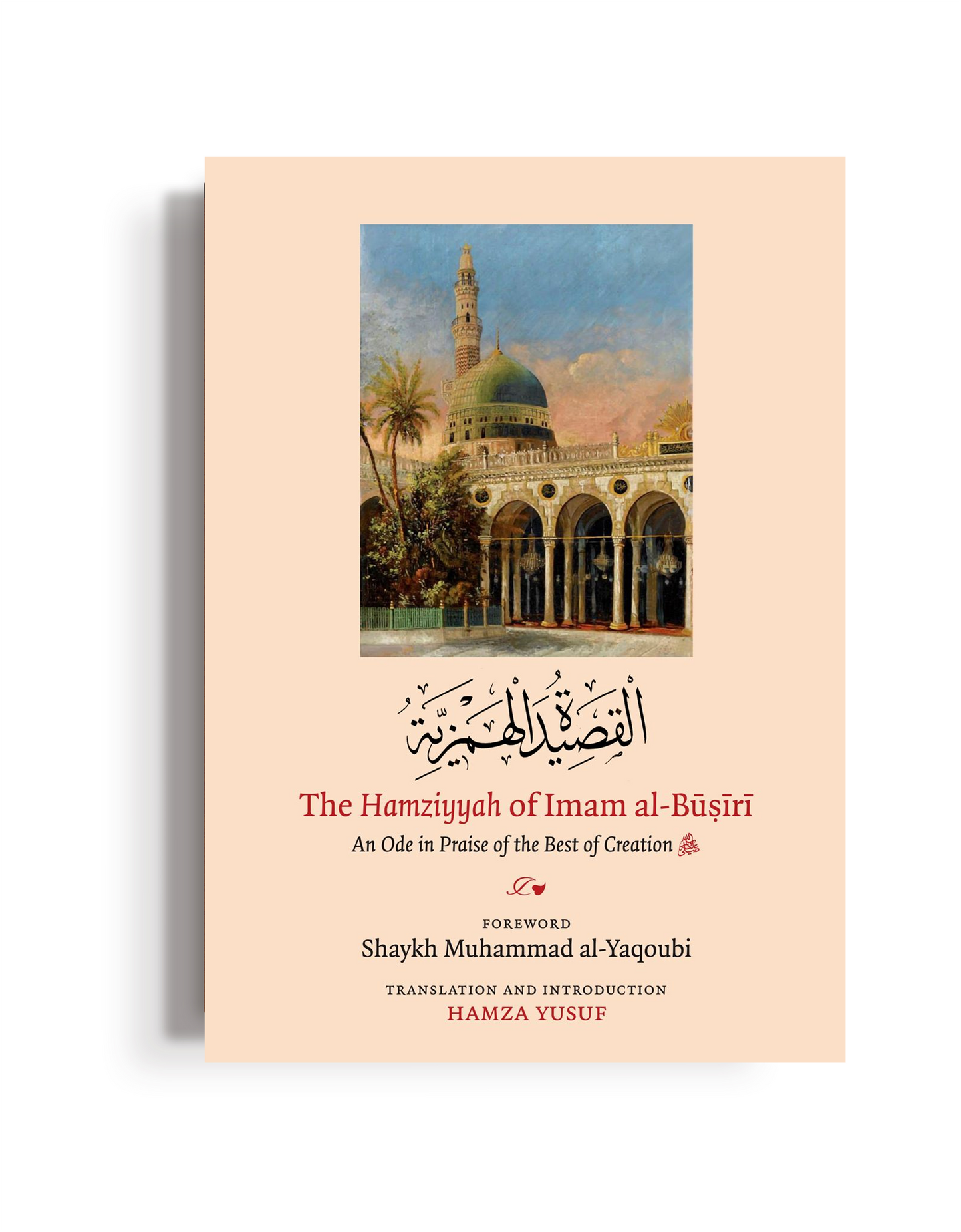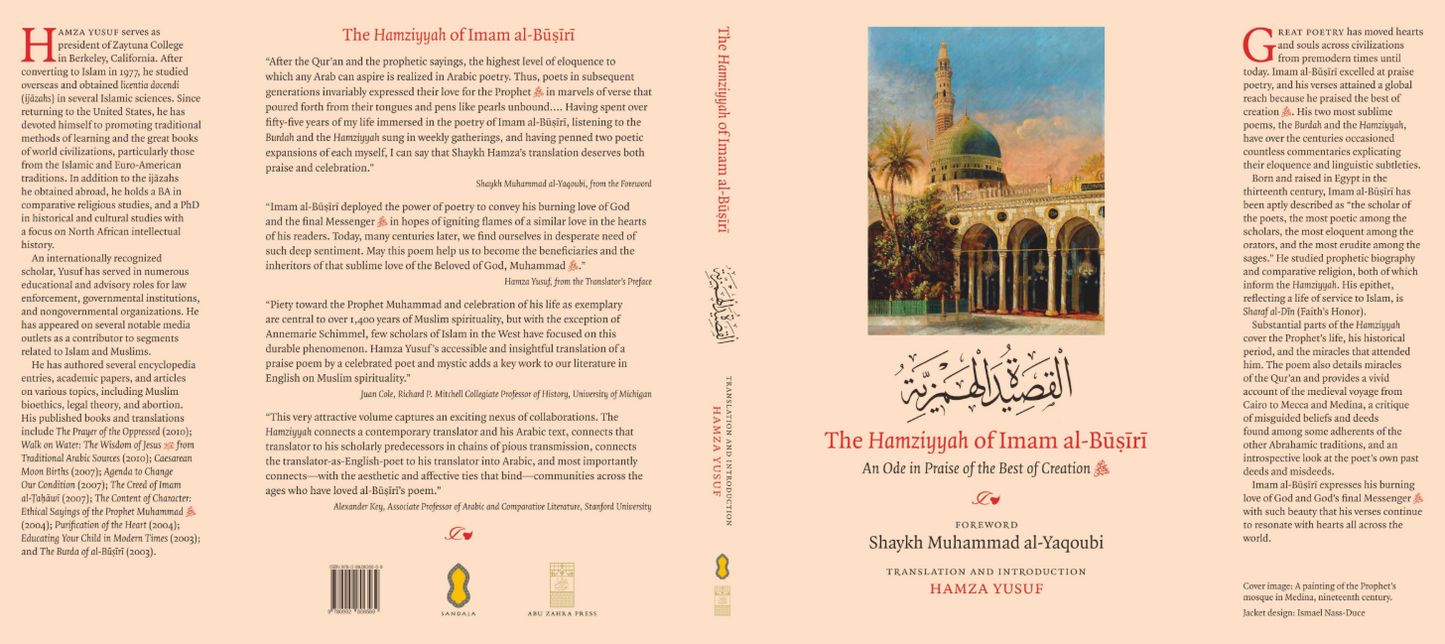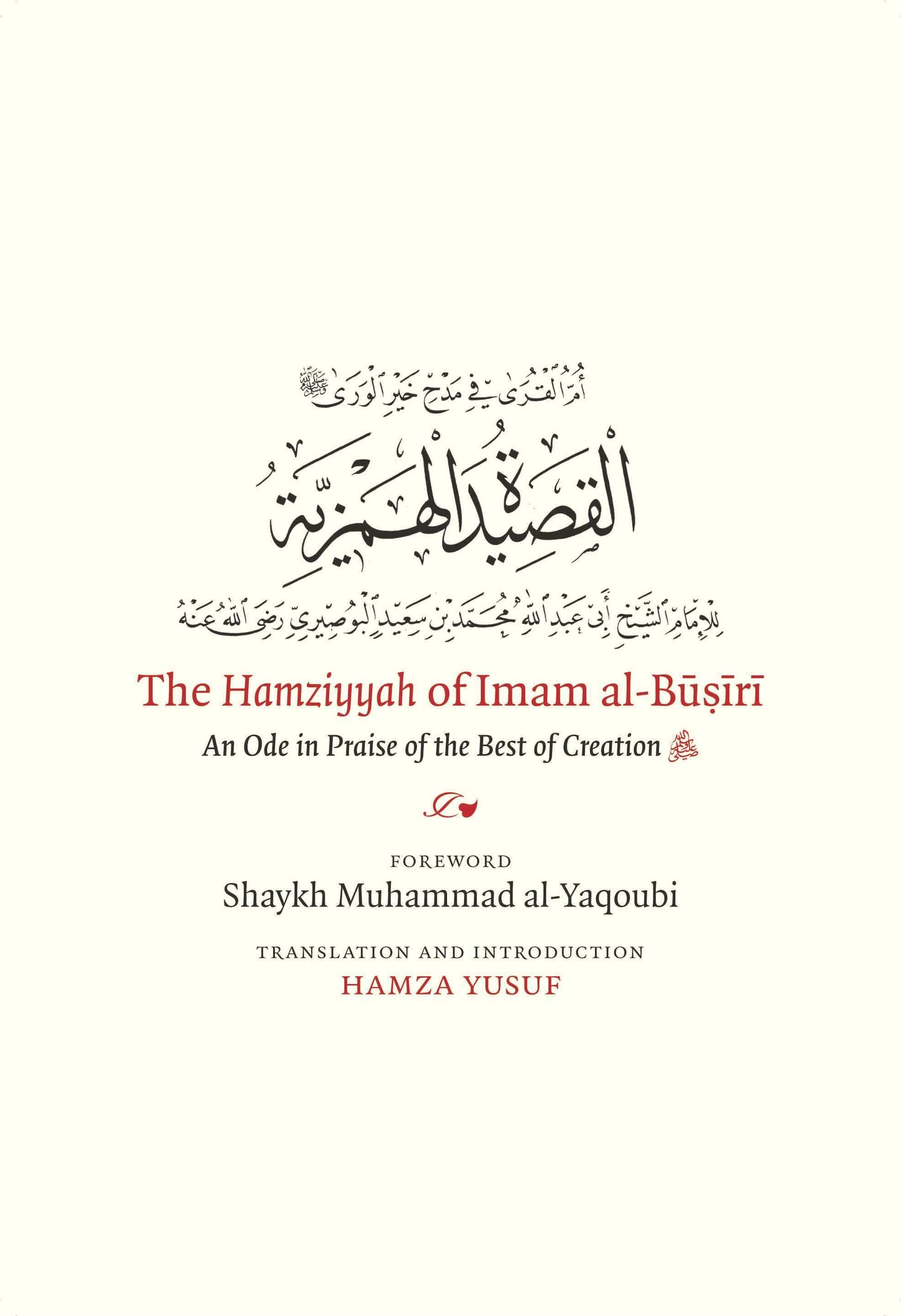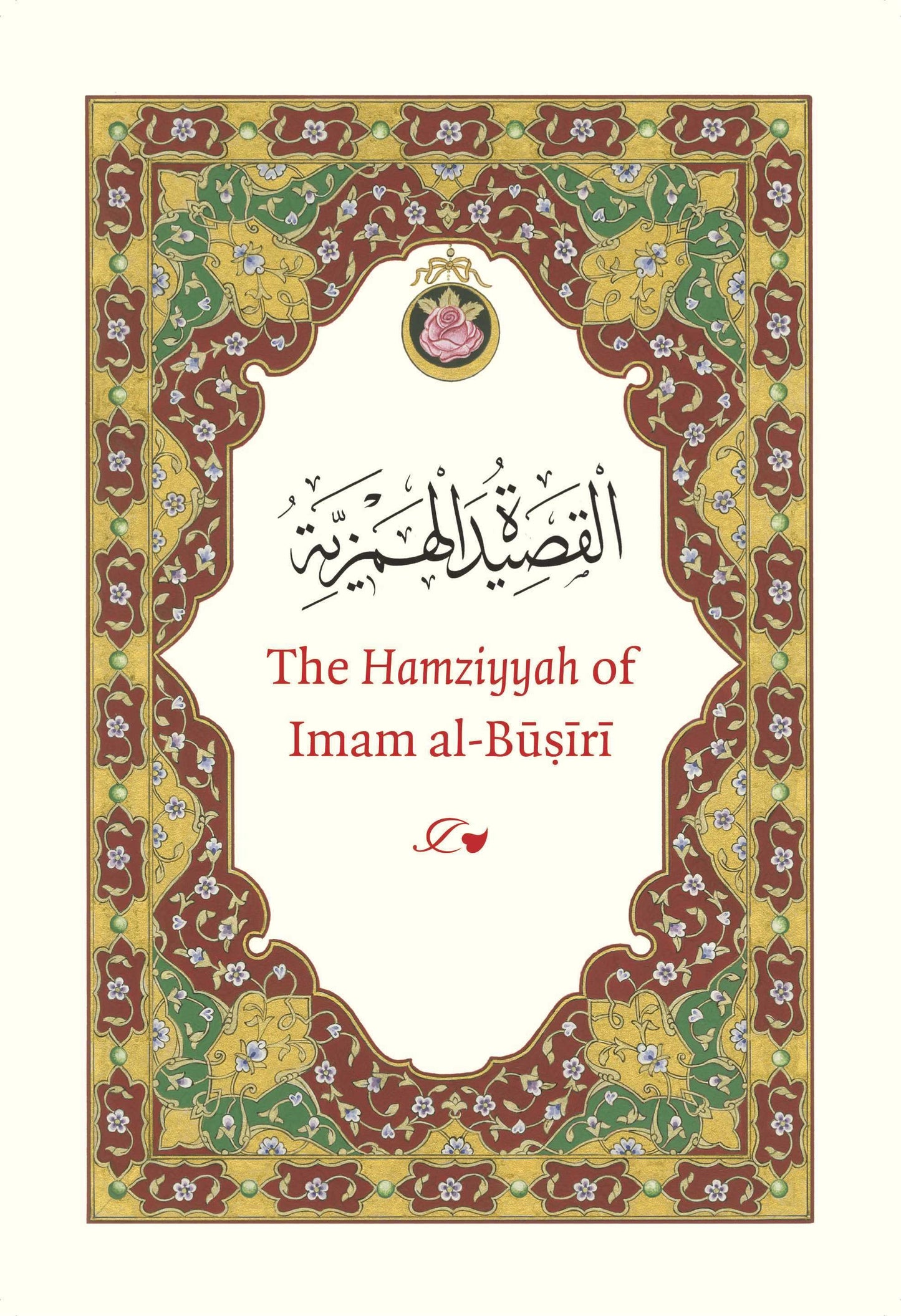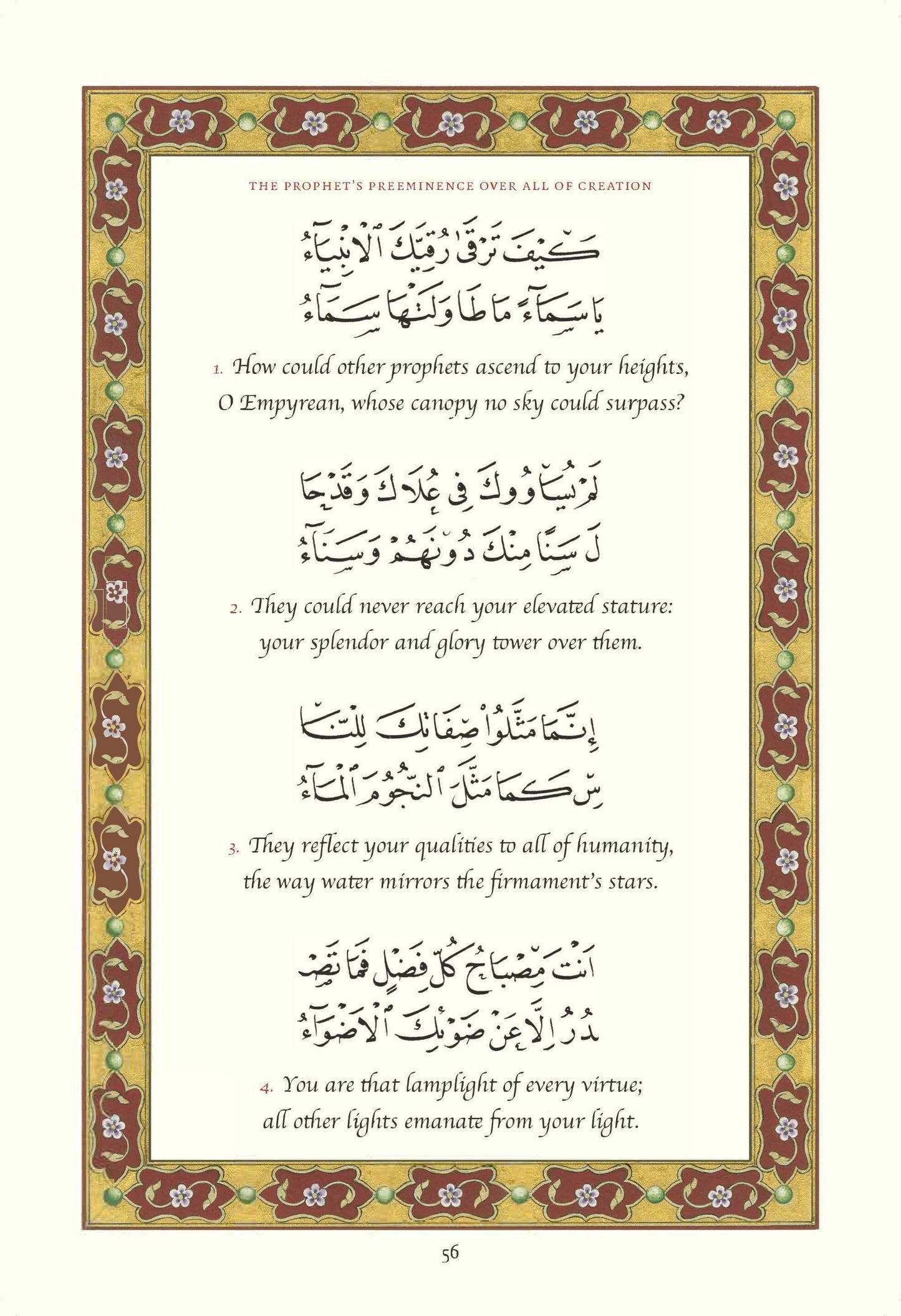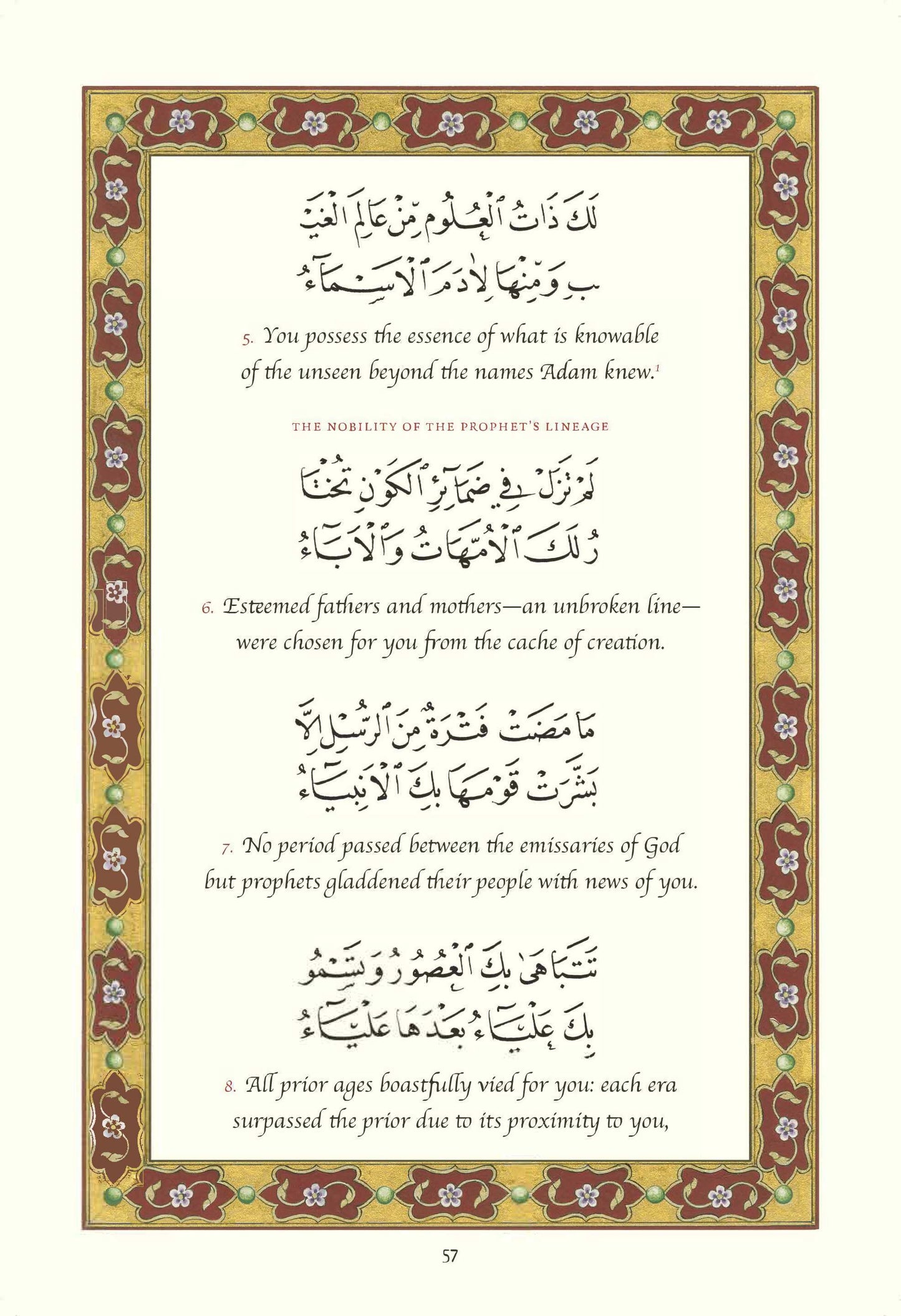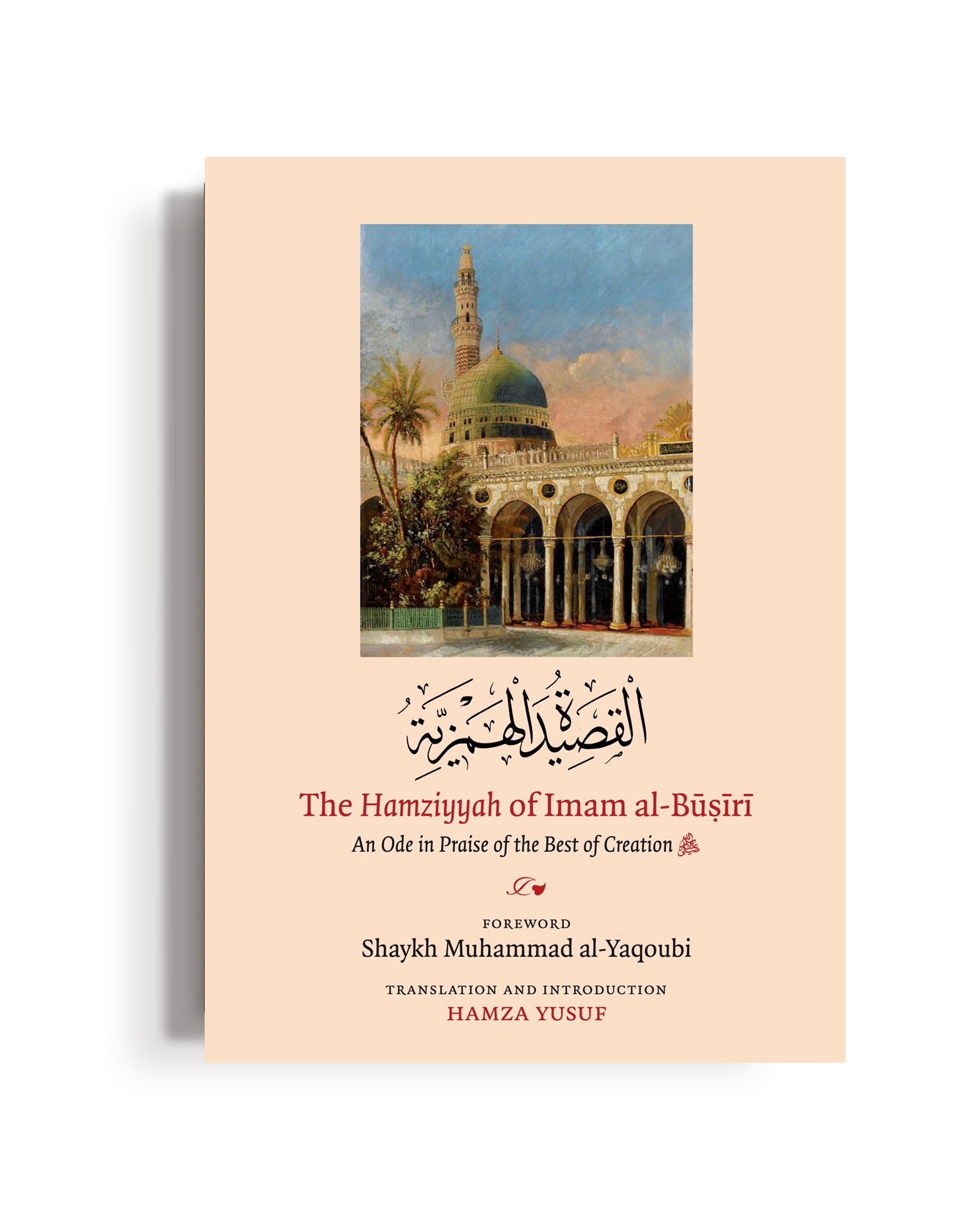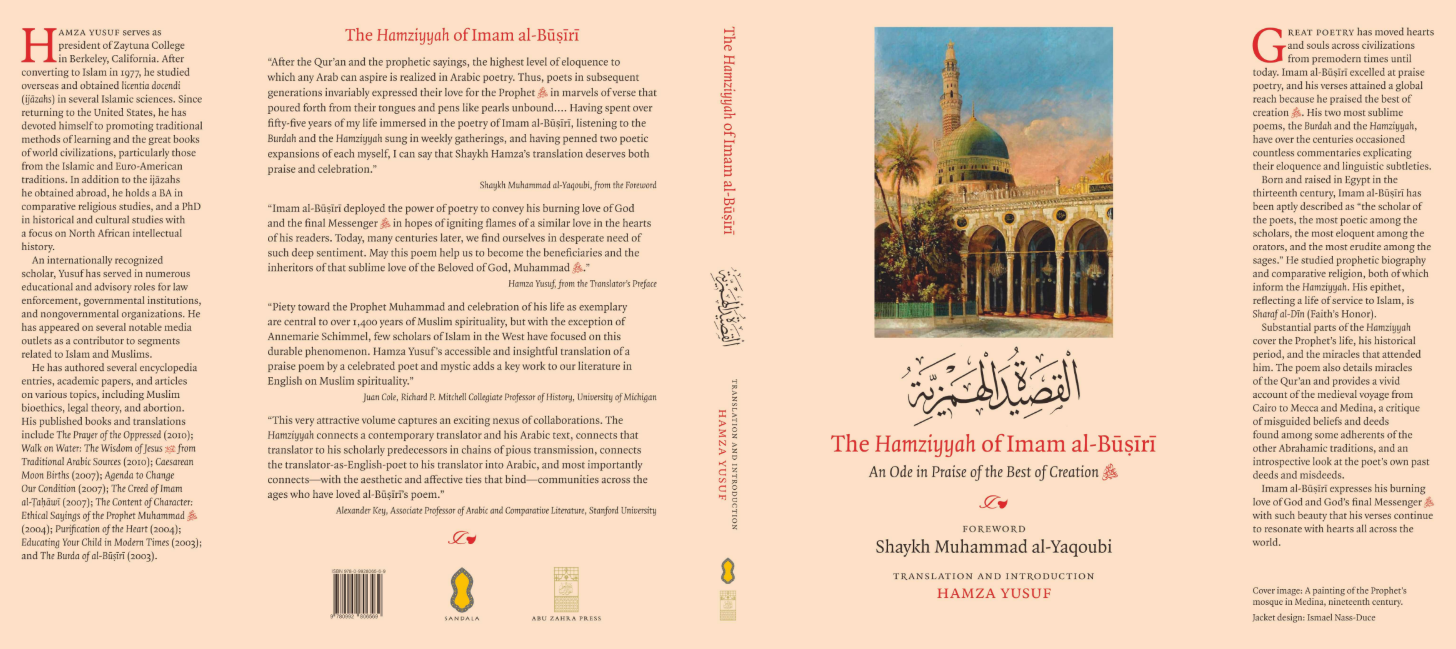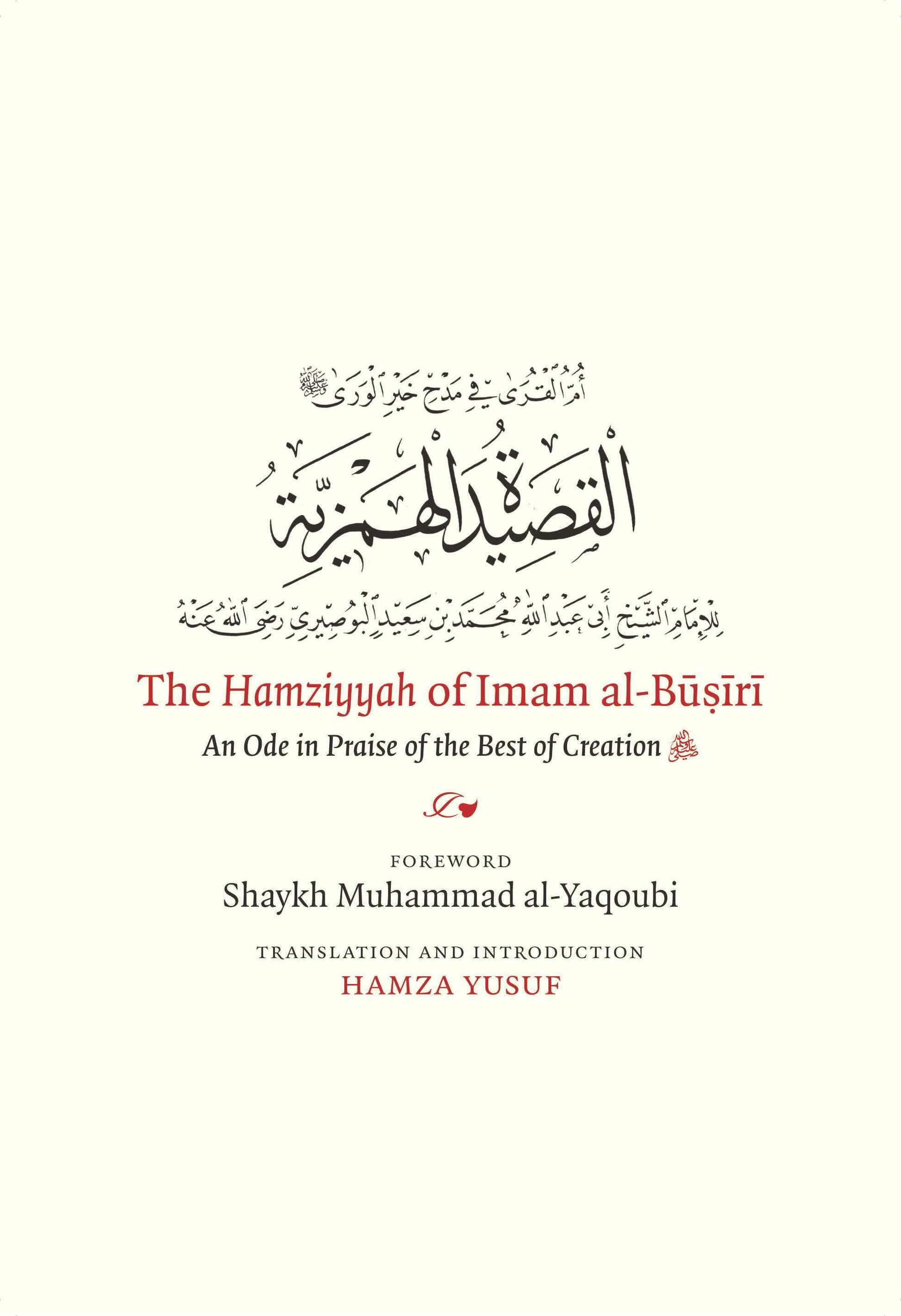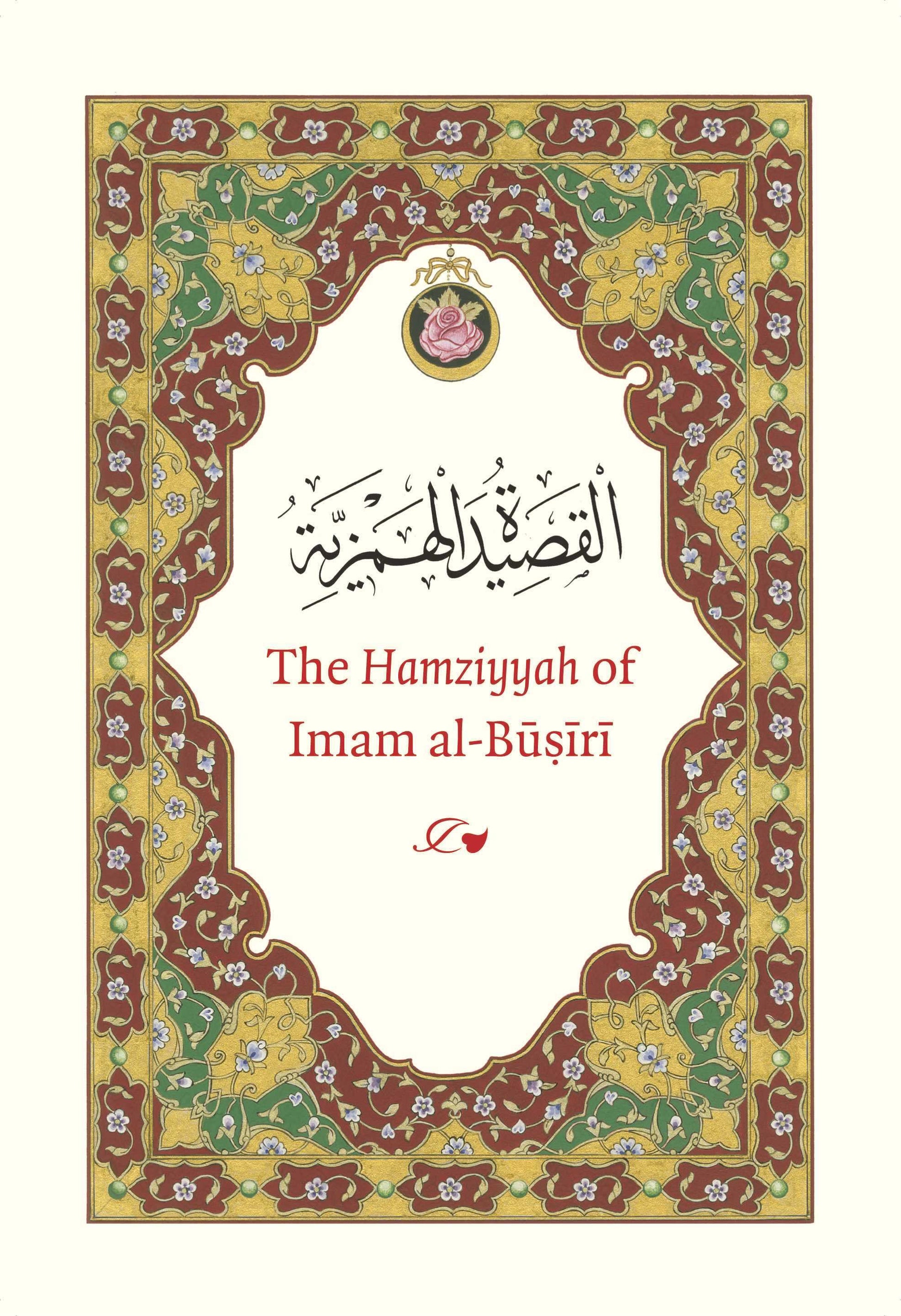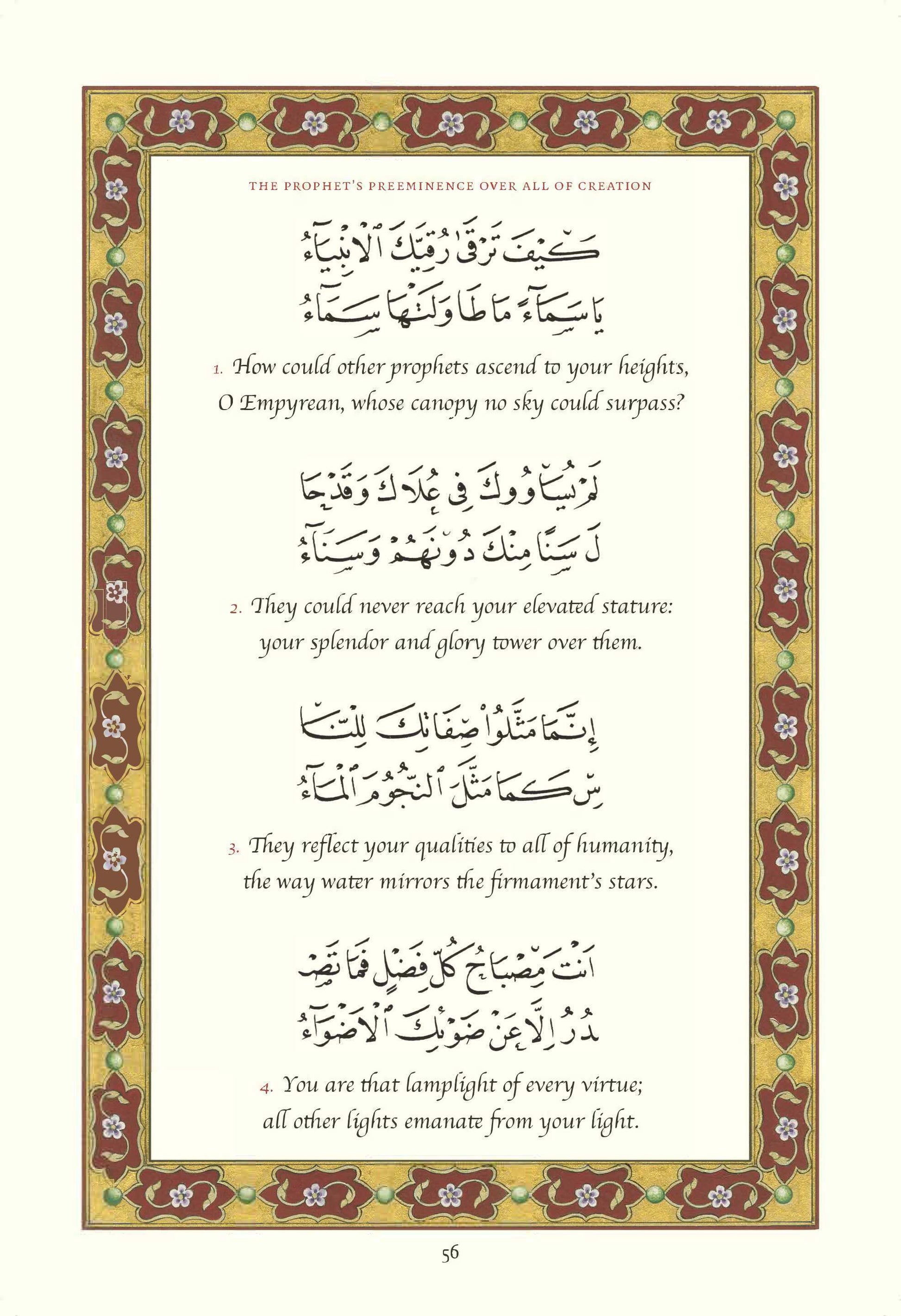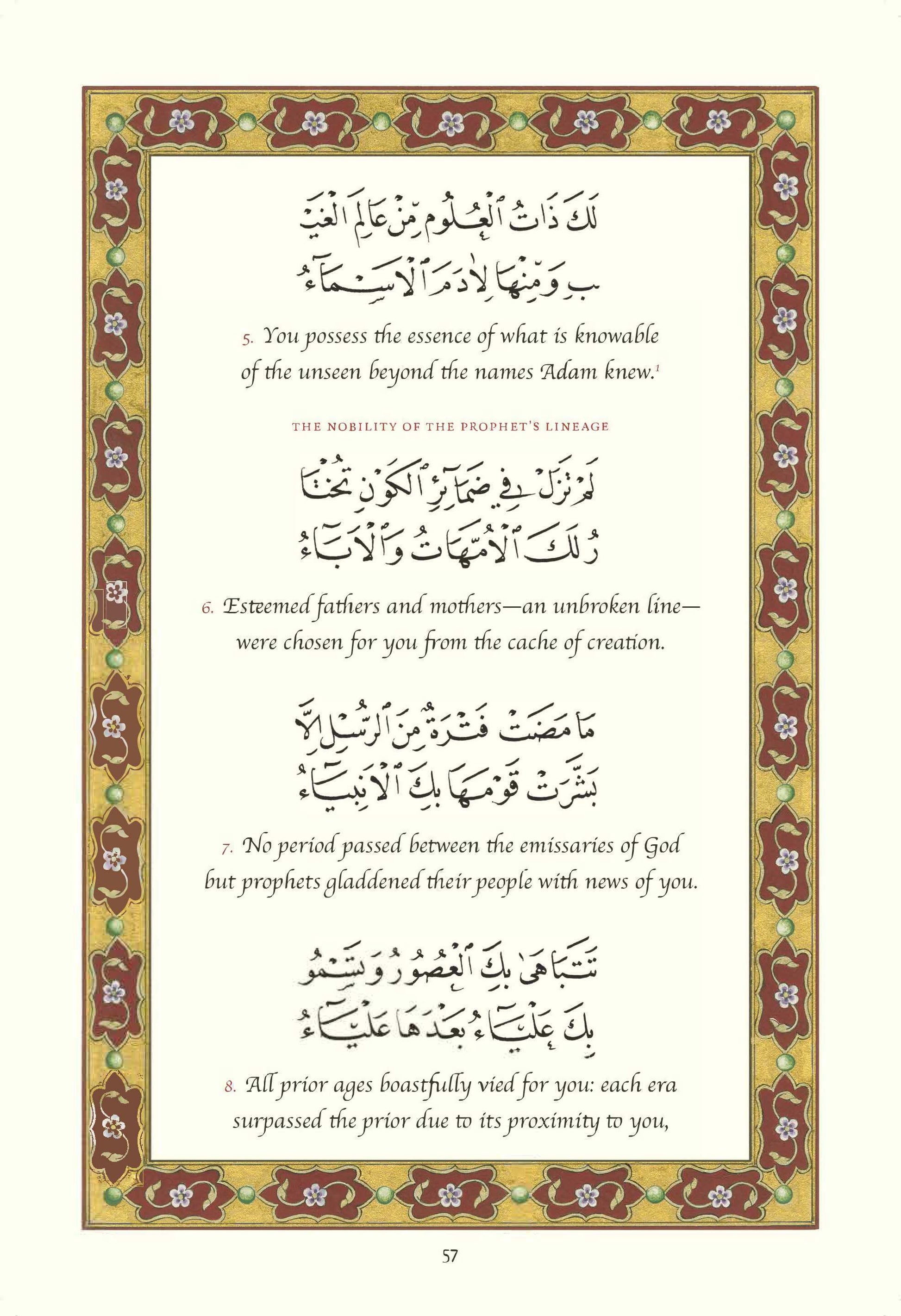abuzahraonline
The Hamziyyah of Imam al-Busiri & Full Rendition by the Fes Singers
The Hamziyyah of Imam al-Busiri & Full Rendition by the Fes Singers
Translated By: Hamza Yusuf
Author Name: Muhammad b. Said al-Busiri
Foreword: Shaykh Muhammad al-Yaqoubi
Language: Arabic, English
Pages: 224
Dimensions: 161mm x 238mm
Book Format: Hardcover
Publisher: Abu Zahra Press, Sandala
ISBN: 978-0-9928065-6-9
Couldn't load pickup availability
This volume is exquisitely produced with the entire poem of 456 lines in Arabic, calligraphed by the world-renowned Sabah Arbilli, alongside the English translation.
Original ornamentation was also commissioned to give the book its beautiful exterior. It also includes additional poems by the translator, ‘Spring’s Gift’ and ‘Be Like Ahmad’ and a lengthy introduction setting the context for this monumental poem and its place in the world today.
Shaykh Muhammad al-Yaquobi kindly wrote a Foreword endorsing the translation and also affording an ijaza (chain of transmission) connecting us back to the author of this sacred tradition.
Born and raised in Egypt in the thirteenth century, Imam al- Busiri has been aptly described as ‘the scholar of the poets, the most poetic among the scholars, the most eloquent among the orators, and the most erudite among the sages’. He studied prophetic biography and comparative religion, both of which inform the Hamziyyah. His epithet, reflecting a life of service to Islam, is Sharaf al-Din (Faith’s Honour).
The final two-hour recording, skillfully mastered by Alex Greaves at Nave Studios in Leeds in the UK, delivers a landmark performance of immense spiritual intensity, displaying their rarefied mastery of the various melodies in this distinct orally transmitted musical tradition. Also featured in the recording is the world-renowned singing virtuoso Sidi Abdelfettah Bennis, who contributes several captivating solo performances.
This recording preserves for posterity the remarkable tradition of Morocco's great devotional singers, who not only memorize by rote all their contributions but who spiritually embody the poet's sentiments with their deep love of the Prophet.
Such commitment to the art requires many years of apprenticeship with masters in a living tradition, and success comes when one perseveres with steadfast devotion—indeed, art for God's sake.
Buy the Full Hamziyyah Recording
Once you have purchased the Hamziyyah book you will receive a link via email to download all the tracks for the entire recording by the world-renowned Fes Singers.
----------------------------------------
“After the Qur’an and the prophetic sayings, the highest level of eloquence to which any Arab can aspire is realized in Arabic poetry. Thus, poets in subsequent generations invariably expressed their love for the Prophet in marvels of verse that poured forth from their tongues and pens like pearls unbound. … Having spent over fifty-five years of my life immersed in the poetry of Imam al-Busiri, listening to the Burdah and the Hamziyyah sung in weekly gatherings, and having penned two poetic expansions of each myself, I can say that Shaykh Hamza’s translation deserves both praise and celebration.” Shaykh Muhammad al- Yaqoubi, from the Foreword.
“Piety toward the Prophet Muhammad and celebration of his life as exemplary are central to over 1,400 years of Muslim spirituality, but with the exception of Annemarie Schimmel, few scholars of Islam in the West have focused on this durable phenomenon. Hamza Yusuf ’s accessible and insightful translation of a praise poem by a celebrated poet and mystic adds a key work to our literature in English on Muslim spirituality.” Juan Cole, Richard P. Mitchell Collegiate Professor of History, University of Michigan
“This very attractive volume captures an exciting nexus of collaborations. The Hamziyyah connects a contemporary translator and his Arabic text, connects that translator to his scholarly predecessors in chains of pious transmission, connects the translator-as-English- poet to his translator into Arabic, and most importantly connects—with the aesthetic and affective ties that bind—communities across the ages who have loved al-Busiri’s poem.” Alexander Key, Associate Professor of Arabic and Comparative Literature, Stanford University
Share
